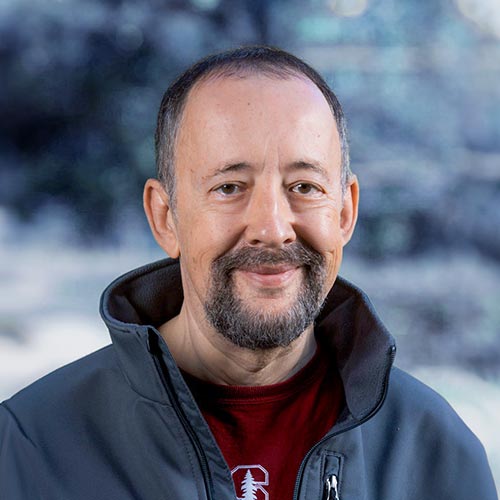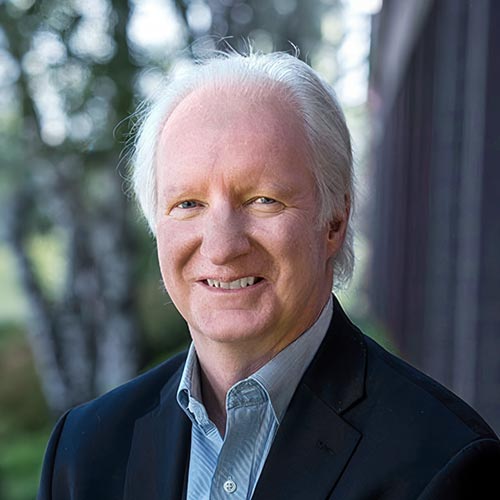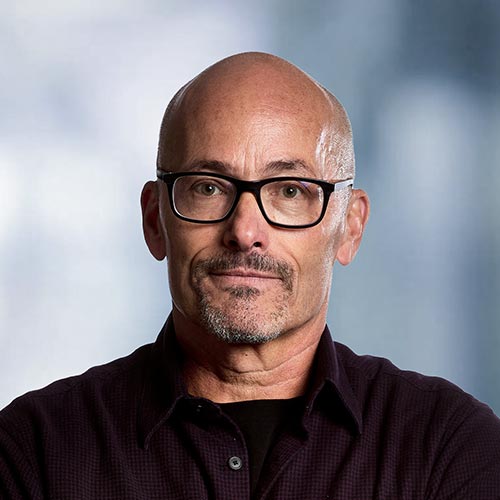About Us

At Acurex, our mission is to develop therapeutics that fundamentally modify the course of neurodegenerative diseases, aiming not just to treat the symptoms but to slow or stop the disease’s progression.
About Acurex
Acurex’s platform and founding intellectual property are based on a Stanford University breakthrough discovery enabling the identification of druggable targets that induce biomarker changes in Parkinson’s disease. Acurex’s platform has generated two oral small-molecule therapeutic programs that cross the blood-brain barrier and protect neurons derived from Parkinson’s disease patients. Acurex’s lead program has begun IND-enabling studies, and the second program to a distinct target is in lead development.
Leadership
 Mark Kaufmann, MBA
Mark Kaufmann, MBA
CEO and Director
Mark Kaufmann is a seasoned C-level executive with over 30 years of experience in the biotech industry. He has held various executive roles, including CEO, COO, CFO, and CBO. Previously, Mark served as CBO and CFO at ESCAPE Bio and was instrumental in securing over $1 billion in deals and financing at Ardelyx, Inc. Previously he spent over a decade forming and leading multiple biotech companies in Montreal. He started his career at MedImmune, Inc. Mark holds a BA in Biochemical Sciences from Harvard University and an MBA from the University of Michigan School of Business.
 William D. Shrader, PhD
William D. Shrader, PhD
CSO and Co-Founder
Dr. Bill Shrader brings 26 years of pharmaceutical industry experience, having led teams that advanced three neurodegenerative disease drugs into clinical trials. His notable achievements include the rapid development of vatiquinone and successful leadership in biomarker development for Amyotrophic Lateral Sclerosis (ALS, or Lou Gehrig disease) trials. His previous roles include Fellow at BioElectron, VP of Research and Development at Edison Pharmaceuticals and senior positions at Celera. Dr. Shrader earned his BS in Chemistry from the University of Illinois, his PhD in Organic Chemistry from UC Berkeley, and completed post-doctoral research at California Institute of Technology.
 Sean Pintchovski, PhD
Sean Pintchovski, PhD
Vice President of Biology
Dr. Pintchovski has extensive experience in neuroscience, bringing over 20 years of experience in neuroscience and neurodegeneration research. Having held leadership roles at Precision Medicine Group and BioElectron Technology Corp., Dr. Pintchovski has led multi-disciplinary teams in developing disease-relevant models and biomarker tools for neurological conditions, including Parkinson’s disease. Dr. Pintchovski earned his BS with honors in Biology from the California Institute of Technology, PhD in Neuroscience from UCSF and completed post-doctoral research at Elan Pharmaceuticals.
 Ashley Gonzalez, PhD
Ashley Gonzalez, PhD
Director of Business Development and Strategy
Dr. Ashley Gonzalez has a proven track record leading strategic projects in biotech environments ranging from top-grossing biotech companies and global medical device companies to early-stage startups. She has completed programs in venture financing and innovative business through UC Berkeley School of Law and Stanford Graduate School of Business. Dr. Gonzalez earned her PhD in Neuroscience from Stanford University where her graduate research contributed to the development of the Miro1 biomarker foundational to Acurex’s drug discovery.
Board of Directors
 Lev Leytes
Lev Leytes
Chairman of the Board, Co-Founder
Lev J. Leytes is an accomplished entrepreneur, investor, and board member, currently Chairman of Generation Capital, LLC, an investment and advisory firm focused on value creation through entrepreneurship.
With over 25 years of executive and board leadership in both public and private life science companies, Lev has bult successful teams, which executed strategic financings, including seed rounds, venture capital rounds, IPO, and mergers. He is now serving as Chairman of the Board at Acurex Biosciences, which he co-founded. Lev also co-founded and led as CEO LJL BioSystems, Inc. (LJLB), a biotech startup that became an industry gold standard, earned a spot at #41 on the INC. 500 list, went public on Nasdaq, and merged with another public company.
Lev is a published author in peer-reviewed journals, holds multiple patents, and speaks at investment and entrepreneurial forums. He has served on the Advisory Faculty of the Institute for Private Investors and was recognized as one of Silicon Valley’s top entrepreneurs in China’s Entrepreneur magazine. He was also selected as a Fellow at Stanford University’s Distinguished Careers Institute.
 Mark Kaufmann, MBA
Mark Kaufmann, MBA
CEO and Director
Mark Kaufmann is a seasoned C-level executive with over 30 years of experience in the biotech industry. He has held various executive roles, including CEO, COO, CFO, and CBO. Previously, Mark served as CBO and CFO at ESCAPE Bio and was instrumental in securing over $1 billion in deals and financing at Ardelyx, Inc. Previously he spent over a decade forming and leading multiple biotech companies in Montreal. He started his career at MedImmune, Inc. Mark holds a BA in Biochemical Sciences from Harvard University and an MBA from the University of Michigan School of Business.
 Galina Leytes
Galina Leytes
Director, Co-Founder
Galina Leytes is an accomplished entrepreneur and business leader in biotechnology. She is the Co-Founder of Acurex Therapeutics, focused on developing therapies for neurodegenerative diseases. Previously, Galina co-founded and served as Executive Vice President of LJL Biosystems, a publicly traded biotech company recognized among Fortune 500's fastest-growing companies. LJL developed high-throughput screening technology that became a gold standard in drug discovery.
Galina also co-founded and led the Israel Strategic Alternative Energy Foundation (I-SAEF), funding early-stage alternative energy research in Israeli universities. Under her leadership, 21 of I-SAEF's 24 projects advanced to commercialization or received further funding. She has served on various private and public company boards and has been recognized for her philanthropic efforts. Galina is a graduate of Stanford's Distinguished Careers Institute, a program for accomplished industry leaders.
 Robert Booth
Robert Booth
Director
Dr. Robert Booth is a renowned leader in the biopharmaceutical industry, with over 30 years of experience spanning drug discovery, development, and executive leadership. He earned his Ph.D. in biochemistry from the University of London and rapidly advanced to become Senior Vice President at F. Hoffmann-La Roche AG. As Chief Scientific Officer at Celera Genomics, Dr. Booth played a pivotal role in initiating and launching the BTK inhibitor program, which resulted in the development of Imbruvica—an innovative therapy for hematological cancers, later licensed to Pharmacyclics, where he also served on the Board of Directors until its acquisition by AbbVie.
In addition to his industry contributions, Dr. Booth has held an adjunct professorship at Stanford University School of Medicine, where his academic work led to the co-founding of Ab Initio Biotherapeutics and CuraSen Therapeutics, Inc. He also founded and served as CEO of Virobay Inc., and has been an operating partner and senior advisor at TPG Biotech. Currently, Dr. Booth serves on the boards of Thryv Therapeutics and Summit Therapeutics, providing strategic guidance to drive innovation in drug development.
 Ken Clark
Ken Clark
Director
Ken brings to our board nearly four decades of experience as counsel for emerging biopharma companies in their strategic, business development, financing and operational efforts. He is currently a Partner of Wilson Sonsini Goodrich & Rosati and TCG Labs, a venture capital fund affiliated with The Column Group. Ken is known for his roles in a number of ground-breaking bio/pharma alliances, including Pharmacyclics’ and Legend Biotech’s partnerships with J&J, Alector’s collaborations with AbbVie and GSK, and dozens of others dating back to Cell Genesys’ early alliances with Japan Tobacco and before. Ken is also on the board of directors of Summit Therapeutics and previously, served on the boards of Pharmacyclics, Inc. and Pulse Biosciences.
 Robert Cohn
Robert Cohn
Director
Robert Cohn is a seasoned entrepreneur and venture capitalist with over 30 years of leadership in the tech and communications industries. He founded and served as CEO of Octel Communications, pioneering voicemail technology, and led the company for 15 years to its number 1 position worldwide in all sectors until it was acquired by Lucent Technologies, where he became an Executive Vice President. Following Lucent, Mr. Cohn was an investing partner at Sequoia Capital for 3 years.
Mr. Cohn has served on a variety of public and private boards, was a Governor of NASDAQ and a member of the Stanford GSB Advisory Board. He has been active with Business Executives for National Security for over 30 years and served in the Defense Reform CEO Panel under Secretary of Defense William Cohen. With a BS in Mathematics and Computer Science from the University of Florida and an MBA from Stanford University, he continues to advise and mentor CEOs of tech companies.
Distinguished Collaborators & Advisors
Scientific Advisor
Love Family Professor of Neurology, Institute director
University of Pittsburgh
Prof., Univ. of Luxembourg
Director, Luxembourg Inst. of Health
Prof., UCL & The Francis Crick Institute
Asst. Prof. Neurology
University of Pittsburgh
Robert Booth, PhD
Scientific Advisor
Dr. Robert Booth is a renowned leader in the biopharmaceutical industry, with over 30 years of experience spanning drug discovery, development, and executive leadership. He earned his Ph.D. in biochemistry from the University of London and rapidly advanced to become Senior Vice President at F. Hoffmann-La Roche AG. As Chief Scientific Officer at Celera Genomics, Dr. Booth played a pivotal role in initiating and launching the BTK inhibitor program, which resulted in the development of Imbruvica—an innovative therapy for hematological cancers, later licensed to Pharmacyclics, where he also served on the Board of Directors until its acquisition by AbbVie.
In addition to his industry contributions, Dr. Booth has held an adjunct professorship at Stanford University School of Medicine, where his academic work led to the co-founding of Ab Initio Biotherapeutics and CuraSen Therapeutics, Inc. He also founded and served as CEO of Virobay Inc., and has been an operating partner and senior advisor at TPG Biotech. Currently, Dr. Booth serves on the boards of Thryv Therapeutics and Summit Therapeutics, providing strategic guidance to drive innovation in drug development.
Tim Greenamyre, MD, PhD
Love Family Professor of Neurology, Institute director
University of Pittsburgh
Dr. Tim Greenamyre is an internationally recognized expert in Parkinson’s disease and neurodegenerative research, serving as the Director of the Pittsburgh Institute for Neurodegenerative Diseases (PIND) and the American Parkinson Disease Association (APDA) Advanced Center for Parkinson’s Disease Research at the University of Pittsburgh. He earned both his MD and PhD in Neuroscience from the University of Michigan.
Dr. Greenamyre has dedicated over 30 years to uncovering the genetic and environmental factors that drive Parkinson’s disease, including pioneering work on the rotenone model of PD. His research has had far-reaching impacts, particularly his exploration of how mitochondrial dysfunction and oxidative damage contribute to neurodegeneration.
In addition to his groundbreaking research, Dr. Greenamyre remains committed to patient care and advancing therapeutic strategies that aim to prevent and treat neurodegenerative conditions. In recognition of his contributions, Dr. Greenamyre was awarded the prestigious 2022 Robert A. Pritzker Prize for Leadership in Parkinson’s Research by the Michael J. Fox Foundation.
https://www.linkedin.com/in/tim-greenamyre-a18b33a/
http://www.pind.pitt.edu/labs/greenamyre-laboratory/
Rejko Kruger, MD
Prof., Univ. of Luxembourg
Director, Luxembourg Inst. of Health
Dr. Rejko Krueger is a renowned movement disorder specialist and geneticist, leading innovative precision medicine approaches for neurodegenerative diseases, with a primary focus on Parkinson's disease. He serves as Director of Transversal Translational Medicine at the Luxembourg Institute of Health, Head of the Translational Neuroscience Group at the Luxembourg Centre for Systems Biomedicine (LCSB) at the University of Luxembourg and is a professor of clinical and experimental neuroscience.
Dr. Krueger coordinates the National Centre for Excellence in Research on Parkinson's Disease (NCER-PD), a national interinstitutional research programme aimed at advancing the understanding and treatment of Parkinson's disease. His research involves the use of patient-derived stem cells to explore the genetic underpinnings of neurodegeneration and develop targeted therapeutic strategies.
In addition to his academic roles, Dr. Krueger works as a neurologist at Centre Hospitalier de Luxembourg (CHL) and has authored over 200 publications in scientific journals. His leadership extends to the Luxembourg Institute of Health (LIH), where he directs translational research programs, fostering collaboration between researchers, clinicians, and industry partners to bring lab discoveries to patient care.
Sonia Gandhi, MD, PhD
Prof., UCL & The Francis Crick Institute
Dr. Sonia Gandhi is a renowned neurologist and neuroscientist, serving as the Senior Group Leader of the Neurodegeneration Biology Laboratory at The Francis Crick Institute and Professor of Neurology at University College London (UCL). She leads the UCL Queen Square Movement Disorders Centre, focusing on translating scientific discoveries into clinical applications for neurodegenerative diseases, particularly Parkinson’s disease (PD).
Dr. Gandhi’s research explores the molecular mechanisms underlying familial and sporadic forms of PD, with a focus on protein misfolding, mitochondrial dysfunction, and cellular degeneration. Her interdisciplinary approach combines single-molecule biophysics with human stem cell systems to unravel the causes of protein aggregation in the brain and its impact on cellular health. She is also involved in cutting-edge efforts to map the molecular landscape of the Parkinson’s brain, aiming to develop precision medicine therapies and biomarkers for disease progression.
With over 120 publications and numerous awards, including the prestigious MRC Senior Clinical Fellowship, Dr. Gandhi’s work continues to push the boundaries of understanding and treating Parkinson’s disease. Through her leadership, she strives to bridge the gap between scientific discovery and patient care, bringing hope for new therapeutic interventions in neurodegenerative diseases.
https://www.crick.ac.uk/research/find-a-researcher/sonia-gandhi
Emily Rocha, PhD
Asst. Prof. Neurology
University of Pittsburgh
Dr. Emily Rocha is an assistant professor of neurology at the University of Pittsburgh, specializing in neurodegenerative diseases with a focus on Parkinson's disease. Her research investigates how lysosomal dysfunction and age-related changes in autophagy contribute to protein aggregation and neuronal vulnerability, particularly in dopamine neurons. By using a multidisciplinary approach that incorporates genetic, molecular, and cellular techniques, Dr. Rocha’s work aims to identify new therapeutic strategies that could slow or halt the progression of neurodegenerative processes. Her lab combines in vitro and in vivo models to explore mechanisms responsible for neurodegeneration and to validate potential neuroprotective treatments for Parkinson’s disease.
Dr. Rocha earned her PhD in Behavioral Neuroscience from Carleton University in Ottawa, Canada, and pursued postdoctoral research at Harvard Medical School and the Pittsburgh Institute of Neurodegenerative Diseases. She has received numerous honors and awards, including postdoctoral fellowships from the American Parkinson Disease Association and the Parkinson’s Foundation. Dr. Rocha's work remains centered on advancing understanding of age-related neurodegeneration and developing new avenues for treatment.
